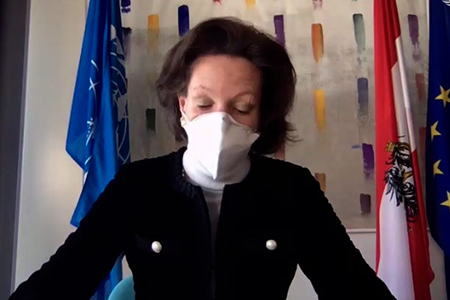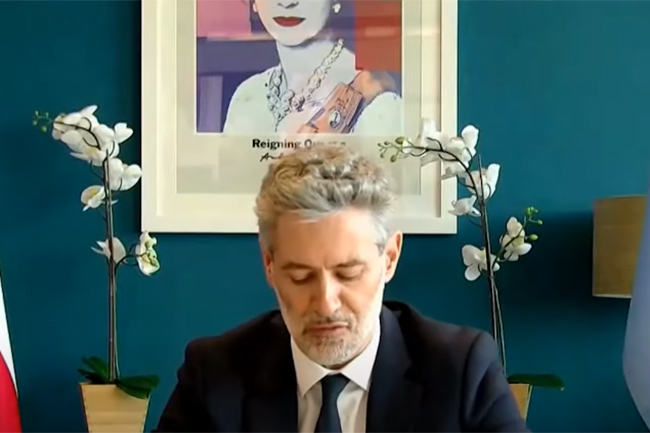Independent institutions weakened, impunity more entrenched in SL: UK tells UNHRC
March 23, 2021 10:59 pm
The United Kingdom on Tuesday (March 23) said the draft resolution on Sri Lanka, sponsored by the Core Group, reflects the findings of UN High Commissioner for Human Rights that the island nation’s human rights situation has deteriorated, with particular concerns to human rights defenders in civil society space and members of different ethnic and religious communities.
Introducing the draft resolution L1/Rev.1 titled “Promoting Reconciliation, Accountability and Human Rights in Sri Lanka”, the representative of United Kingdom of Great Britain and Northern Ireland Mr. Julian Braithwaite said the independent institutions in Sri Lanka have been weakened while impunity has become more entrenched.
The draft resolution, sponsored by United Kingdom, Canada, Germany, Malawi, Montenegro, North Macedonia, was formally submitted on March 12.
Individuals who sought to seek justice and advance accountability have found themselves persecuted, Braithwaite pointed out, adding that others who were convicted or suspected of large-scale violations were meanwhile pardoned and promoted.
He went on to stress that the said draft resolution and the Core Group is not anti-Sri Lanka. “We are friends of Sri Lanka and its people.”
Braithwaite noted that they are bringing this resolution in the hope that it will help advance the human rights of all communities and most importantly that it will help prevent the recurrence of past grave violations.
“We believe this constructive and balanced text provides the best framework to support justice and lasting reconciliation and address the most critical human rights challenges,” he added.

Among the countries that voted against Sri Lanka was Austria, which called on the Sri Lankan government to continue to promote reconciliation, accountability and human rights in the country including its corporation on this resolution.
Its envoy Ms. Elisabeth Tichy-Fisslberger, in her pre-vote statement on behalf of the European Union, reiterated the organization regrets the Sri Lankan government’s withdrawal from supporting these resolutions.
It is key that the Human Rights Council signals international communities’ continued support for post-conflict reconciliation and accountability in Sri Lanka, she added.
She stressed that this resolution is also important given the warning signs of deteriorating human rights situation including erosion of democratic checks and balances, intensified surveillance and intimidation of CSOs, human rights defenders and victims as well as discrimination of persons belonging to religious and ethnic minority communities.












